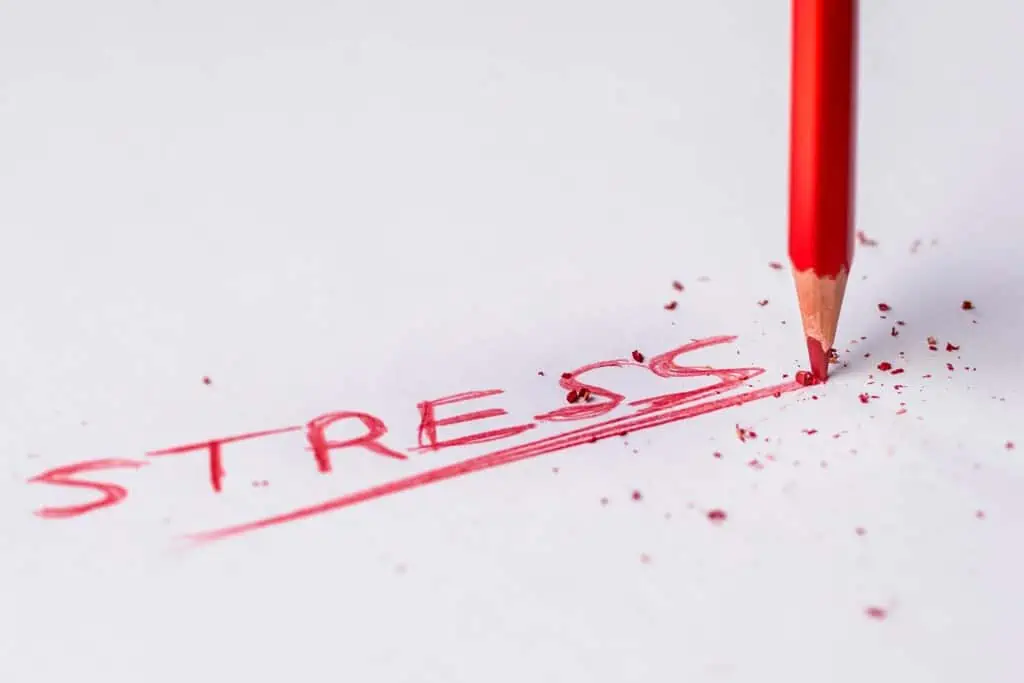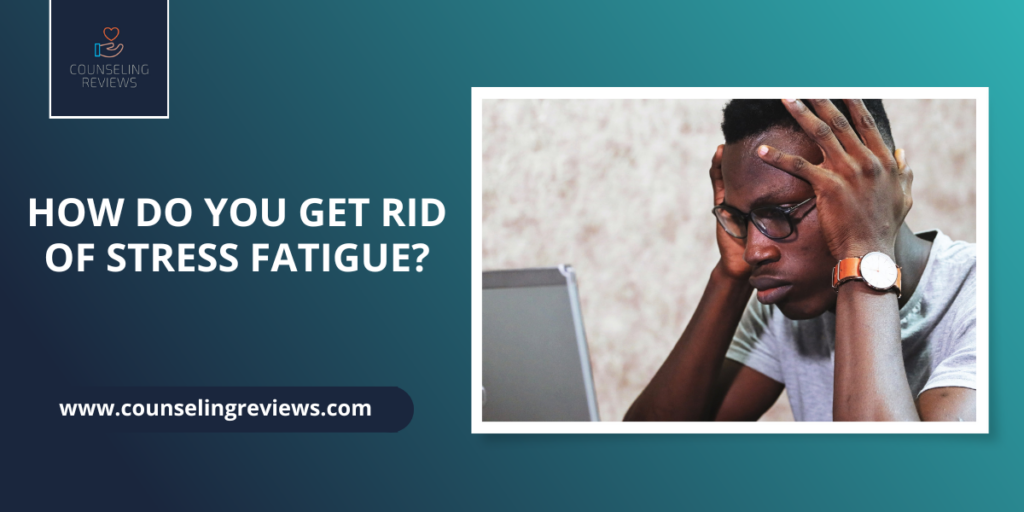You may have come across the term “stress fatigue” before, but it is not a specific condition. Instead, prolonged stress can cause fatigue and exhaustion, affecting productivity and physical and mental well-being.
With more people living sedentary lifestyles while trying to achieve more in life, being stressed out is, unfortunately, a default state of being today. Right at the outset, it is important to differentiate stress from chronic or prolonged stress. While some level of stress is necessary and pushes us into action, a prolonged state of stress can put your mind and body on guard and deplete your energy levels.
In this article, let’s look at stress-related fatigue and how to reduce its ill effects on your mind and body.
What is stress-related fatigue?
Before we understand what stress-related fatigue is, it is important to understand what stress is. Stress can be defined as the state in which your mind senses and perceives external (and sometimes internal) pressure while your body responds to these stressors by trying to cope in different ways. Hence, stress is both a psychological and a physiological condition with far-ranging effects.
When stressed out, you may not sleep well, feel irritable, and your fight-or-flight response may get activated. In addition, your endocrine system may not function optimally, you may produce more cortisol and adrenaline, and your metabolism may also get disrupted. Consequently, you will not feel physically or mentally all that great — you may feel tired, exhausted, and unmotivated. The fatigue directly resulting from prolonged stress can be termed “stress-related fatigue.”
What causes stress fatigue?
Prolonged exposure to stressful situations can result in stress-related fatigue. You have many reasons to remain stressed out for weeks and even months. Having to deal with work-related pressure, personal problems such as divorce, death in the family, or even health conditions can cause stress. Studies show that when someone is diagnosed with chronic illnesses, they often feel stressed, worsening various physical and mental health outcomes.

In addition to external factors and health conditions, your emotional state may affect your stress level too. If you are the kind of person who gets upset easily, you may be at a higher risk of being stressed out than others. Ultimately, how we deal with stress and how it affects us boils down to individual resilience and coping mechanisms. Stress affects all of us negatively, but the degree and presentation may vary.
When experiencing stress, your body and mind experience what is often termed a fight-or-flight response. This is one of the reasons why we tend to avoid unpleasant situations. If you have been putting away an unpleasant task at work, it is probably because it stresses you out, and your mind tries to escape the situation by procrastinating and using various escape mechanisms. When you can no longer avoid having to make the presentation, you will end up feeling helpless and hopeless. This can cause your body and mind to feel exhausted. Uncontrolled cortisol levels, which are released when you are under duress, can leave you tired and weary.
Is stress-related fatigue the same as chronic fatigue syndrome?
Many people experience what is called “chronic fatigue syndrome”, which is not the same as stress-related fatigue. Chronic fatigue syndrome covers a broad range of symptoms resulting from unknown factors. Researchers believe infections, certain health conditions, genetic predisposition, and immune disturbances may cause chronic fatigue syndrome. Bjørn Grinde at the Norwegian Institute of Public Health believes that stress may also play a role in the development of chronic fatigue syndrome. Nevertheless, stress-related fatigue is not the same as chronic fatigue syndrome.
Symptoms of stress-related exhaustion
Whether you have chronic fatigue syndrome or stress-related fatigue, you may experience various physical and mental symptoms. These include:
- Migraines and headaches
- Sore muscles and muscular debility
- Lack of energy and disturbed sleep
- Loss of appetite and changes in bowel movement
- Worsening of skin conditions like eczema and allergies
- Difficulties with recalling things
- Inability to focus or concentrate on important things
- Lack of motivation and loss of interest in things you may have previously enjoyed
- Feeling helpless and hopeless

You may also experience other psychosomatic symptoms not listed here, as each person responds differently to stress. However, the common denominator is feeling tired and weary.
7 ways to get rid of stress fatigue
If you think you’re experiencing stress-related fatigue, getting your medical evaluation is important. Visit your general physician and ask for a complete body checkup so that medical reasons for your fatigue can be ruled out. Blood sugar spikes, hypertension, certain autoimmune conditions, and cardiovascular disease can cause symptoms that resemble stress-related fatigue.
Before attributing your symptoms to stress, it is important to rule out underlying health conditions. Once your doctor deems your tiredness and exhaustion possibly stress-related, you can do multiple things to take charge of your life.
1. Reduce stress
Although this is easier said than done, there are a few things you can do to minimize stress right from the outset.
- Acknowledge that you are experiencing stress.
- Identify the source of stress or the situations you feel may be causing you to be stressed out.
- Evaluate what you can do to reduce the source of stress. If it is something under your control, such as avoiding a toxic person at work or in life, do it. If you cannot minimize exposure to stressful situations, practice the steps below.
2. Make healthy lifestyle choices.
Unfortunately, most of us cannot escape stressful life situations. Whether it is a health condition, a painful divorce, or a toxic work environment, we just need to face the realities of life. However, you can minimize the impact of these stressors by making healthy lifestyle choices.
- Fix your sleep cycle by practicing sleep hygiene. Ensure at least seven hours of sleep at night,
- Drink enough water, reduce caffeine and alcohol consumption, and order takeaways.
- If you cannot hit the gym, walk for at least 30 minutes daily.
3. Maintain a good work-life balance.
Regardless of what is causing stress, it is important to maintain a good work-life balance. Plan your day beforehand and only take up tasks you can complete. Refrain from responding to emails after your work hours or carrying work home. Make sure that, post-office hours, you give yourself time to relax, socialize, nurture a hobby, and connect with nature.
4. Practice mindfulness
Being mindful or “mindfulness” is the condition of being aware of your thoughts, emotions, and your environment without making value judgments. Although mindfulness has its roots in Buddhist and Christian monastic ways, anyone can practice it without being spiritual. All you need to do is to become more aware of how your mind functions without judging your thoughts. Mindfulness meditation is a form of meditation where you observe your thoughts and emotions nonjudgmentally. It helps you gain clarity and reduces stress levels, especially when performed alongside certain breathing techniques.
5. Connect with others
In a hyperconnected and digitized world, real-world socialization is often undervalued. If you consume too much social media without spending quality time with your friends, it is time to start doing that. If you do not have friends or if they are too busy, you can begin to socialize with your colleagues at work. Any human interaction can help you connect with people again — just ensure it is not work-related. Connecting with people and real-world socialization is a great stress buster.
6. Change your attitude
Our attitude towards life can affect how we perceive the environment and life situations. One of the reasons why we feel stressed out is because we think we do not have control over our situation. This is when our fight-or-flight response fails to take off, and we feel helpless and hopeless. When you start taking control of your situation, bit by bit, you will notice that you feel less stressed out and possibly even joyous.
7. See a therapist or doctor.
Unfortunately, extreme levels of stress require professional help. You may not be able to deal with stress-related fatigue alone. In addition to seeing your general physician, you may benefit from seeing a mental health professional. Clinical psychologists and other mental health professionals can teach you how to adapt to stressful situations and tolerate distress so that you can learn to be more resilient. Your therapist may also identify unresolved issues perpetuating stress-related concerns such as fatigue.
FAQs
How to tell if my fatigue is due to stress or something more serious?
It is difficult to declare that fatigue is due to stress, even though you may be experiencing stress now. Several physical and mental conditions (other than stress) can cause fatigue. Hence, it is important to first visit a general physician to rule out underlying physical illnesses. If the self-help strategies listed above do not help you, seek the assistance of a trained mental health professional.
Can emotional stress cause a lot of physical exhaustion?
Emotional disturbance causes stress and is known to have physiological effects. For instance, being emotionally upset can cause a brain aneurysm, raise blood pressure levels, and even initiate a heart attack. Hence, being emotionally upset for a long time can make you physically weak and exhausted. It is important to remember that the health and well-being of our mind and body are interrelated.





